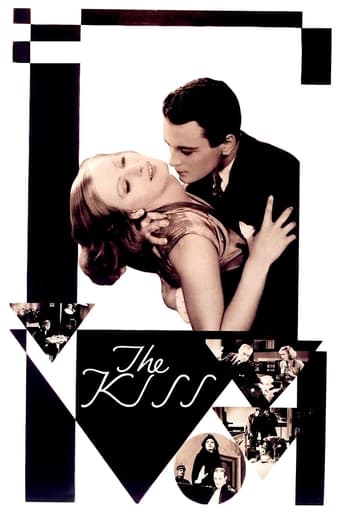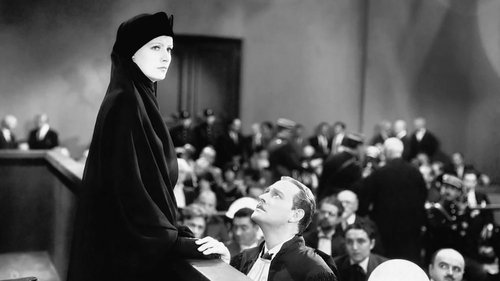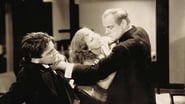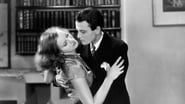JohnHowardReid
Greta Garbo (Irene), Conrad Nagel (Andre), Anders Randolf (Guarry), Holmes Herbert (Lasalle), Lew Ayres (Pierre Lasalle), George Davis (Durant). (This was M-G-M's last silent movie). Director: JACQUES FEYDER. Screenplay: Hans Kraly. Story: George M. Saville. Titles: Marian Ainslee. Photography: William Daniels. Film editor: Ben Lewis. Art director: Cedric Gibbons. Gowns: Adrian. Music score: Dr William Axt. Copyright 26 November 1929 by Metro-Goldwyn-Mayer. New York opening at the Strand: 15 November 1929. U.S. release: 16 November 1929. SYNOPSIS: Jealous husband attacks an innocent youth and is killed in the struggle. (Rated 10/10 DVD from Warner Archive).COMMENT: A fast-paced, extremely realistic (at least in acting, sub-titles and sets) romantic melodrama. Slinking around in Adrian gowns, Garbo looks very sexy indeed. Jacques Feyder, making his Hollywood debut, has managed to fill the screen with lots of beautiful close-ups of Miss Garbo, yet at the same time handle the story with both style and economy. Lew Ayres is most effective.
lugonian
THE KISS (Metro-Goldwyn-Mayer, 1929), directed by Jacques Feyder, goes on record as the last silent movie for both the studio and its popular leading lady, Greta Garbo. Released near the close of the year when talkies were the talk, or in other words, the rage of the movie business, MGM took a gamble on continuing on making product of silent movies that's now considered passé, and keeping the Swedish temptress from appearing in a talkie until finally "Garbo Talks" in the highly popular ANNA Christie (1930). What's even more common up to this point was casting Garbo as an unfaithful woman married to a middle-aged man involved with one closer to her own age. For THE KISS, two young men, screen veteran Conrad Nagel, and newcomer Lew Ayres. While MGM might have placed the versatile Lewis Stone as the older husband, having done so with Garbo in WILD ORCHIDS (1929), Anders Randolf became the final choice. He acts his part with further conviction than Stone would have if he played the part. For a ordinary story (by George M. Seville) that could have taken place anywhere from New York to Tahiti, the setting for THE KISS is in Lyons, France. It's uncertain if the leading players are characters of French descent, but if so, maybe it's a good thing that THE KISS is a silent film since it's a hard to imagine the Swedish Garbo speaking with a French accent? As for the screenplay (credited to Hans Kraly), the story opens at the Museum of Fine Arts where Irene Guarry (Greta Garbo) is meeting secretly with Andre Dubail (Conrad Nagel), her lover. Andre wants Irene to divorce her husband, Charles (Anders Randolf), a silk merchant whose business prevents him from giving his wife the full attention she desires. Fearing of his jealous nature if the two men should meet, and unable to come up with a possible solution, Irene and Andre decide to part company. Returning to her usual lifestyle and social functions, Irene attends one given by her husband's business partner, Lassalle (Holmes Herbert), whose 18-year-old son, Pierre (Lew Ayres), has a crush on her. Suspecting Irene to be unfaithful, Charles hires Durant (George Davis), a detective, to trail her. During the investigation, Durant finds Irene constantly in the company of Pierre, in reality to be all very innocent. One night while Charles to assist Lassalle, whose on the verge of bankruptcy, Pierre comes over to visit with Irene, who had promised him a picture of herself to take with him upon his return to school. Discovering they are alone, Pierre forces himself on Irene with a passionate kiss at the very moment Charles returns to catch them together. As the irate husband beats the frightful youth senseless, Irene suddenly grabs her husband's revolver and off camera fires a shot. Because the police find contradictions in her story, Irene is arrested to later face a murder trial with her former lover, Andre, as her attorney.An acceptable melodrama of the soap-opera school made interesting by its lengthy courtroom climax consisting of various points of views told via flashback depicting what occurred the night of the murder. Aside from such notable camera angles and stylish sets, along with added sound effects of the telephone ringing and a gunshot noise, there's also wonder what secret Irene is holding back from her attorney and what the verdict will be, a common practice in many trial stories.While THE KISS is sometimes credited at 89 minutes, circulating prints available either on the old 1990s VHS format or on cable television's Turner Classic Movies have the running time of 62 minutes, which obviously was the one distributed in theaters since there seems to be no indication of severe editing nor sudden fade-outs. Containing a musical track conducted by Dr. William Axt, its only drawback is its repetitious use of Tschiakowski's love theme composition for "Romeo and Juliet." Other than that, this is typical Garbo of the 1920s that should still be of some interest today and the film for which she kisses goodbye to the art of silent movie making.(**)
Michael_Elliott
Kiss, The (1929) *** (out of 4) A flirtatious married woman (Greta Garbo) has an innocent relationship with a young kid (Lew Ayres) but when she gives him a friendly kiss goodbye tragedy follows. The main highlight here is Garbo, in her final silent and Ayres, in his film debut and their chemistry together. The two work remarkably well together and their innocent relationship really comes off as fun. The "tragedy" that happens plays out well but the really poor direction by Jacques Feyder kills this from being better. The TCM print ran 62 minutes but Maltin's book lists the running time at 82 minutes. I don't think anything was cut but instead they played the film at a higher FPS rate. This was also MGM's final silent picture.
ptb-8
The last silent film of the 20s is a perfect showcase to reveal succinctly and gloriously exactly why this cinematic form was a genuine work of living breathing visual art. Basically a 64 minute glamorous murder mystery of love gone wrong and love misinterpreted THE KISS was Garbo's silent farewell to the 20s too, before "just gimme a scotch baby" or whatever slutty thing she mumbled in 1930 set the tone for talkies. I saw this on a double feature with the astonishing and romantic 1929 talkie drama The Divorcée which I also heartily seriously recommend for students of the age and genre. SO modern! Anyway, THE KISS has committed to everlasting celluloid imagery of one of the most perfect moments in film history...and this is not a spoiler, in fact a great reason for you to find and enjoy this gorgeous film: teenager Lew Ayres has fallen in love with Greta; it is his besotted first time and she is exquisite anyway...so imagine the focus and impact for this charming boy. His tennis match with her at her home has her playfully leaping about laughing and being his friend too. At the end of the game, as they leave the court, she is delighted to be with him and playfully kisses him. So stunned at this impromptu expression of affection, he returns the kiss, and lets his emotions escape. She realises and for a brief moment has THE KISS before stopping it short. Estranged husband has seen all from the drawing room. But the focus here is also on Lew actually unexpectedly getting what he has only dreamed about. She turns away to go to the house and the camera lingers on Lew. So overwhelmed, he privately begins to cry at the enormity and perfection of what has just happened. There isn't a person on the planet who would not have had the same reaction..and this wise and almost perfect film clearly includes us all in on this act and reaction. Sooo genuinely beautiful. Find it. Love it. Kiss it even.... A murder mystery ensues....








